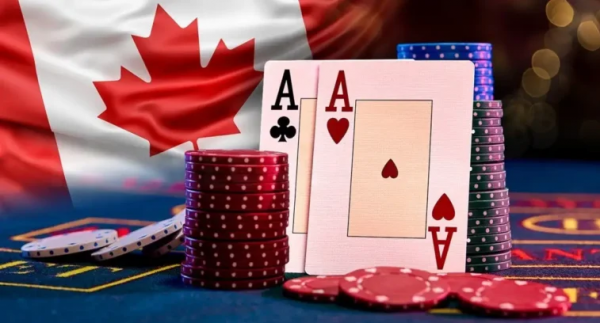Poker is a game of skill and luck that has an undeniably significant social aspect to it. The popular game is played by both professionals and amateurs, of course. Even if you’re not a professional, you may take the game seriously, investing time and resources to improve your game by signing up to poker training sites, for example, while your friends may just play for fun and not necessarily fully grasp some of the game’s finer concepts.
I consider myself a serious recreational player. I mostly get my poker action in home games, with friends. If you’ve played poker with friends for a while, you obviously have a feel for who among them are stronger players and who among them are weaker players. While you may be friends away from the table, when you’re at the felt, there’s no room whatsoever for soft play. You’ve got to play to win! Letting your friend take a hand down, or get away with losing less because you want to “be nice” and not extract full value from them is doing them (and of course yourself!) a disservice. There are right and wrong ways to help your buddies play better poker, but letting them win is not one of them. It goes way beyond poor etiquette.
There are several ways to get your buddies up to speed. On the one hand, you don’t want to “tap on the aquarium” (and scare away the fish), but if you truly care about your friends and want to see them improve as poker player as well, there are numerous ways you can help them. Just be sure to do so away from the felt, and not during gameplay!
Here, then, are five top ways to help your buddies get better at poker.

Have Them Watch and Learn
If your buddies are just beginning to learn poker, the best way to get them in the loop would be to let them watch you play. They could rail you at either a live or online table. Just watching how you act and what decisions you make could teach them plenty! If it’s online, you could even simultaneously share your thought process, explain rules, procedures, strategies, and situations that arise. In a live setting, of course you need to be careful they don’t say anything or you don’t speak too loudly, so your opponents don’t catch any additional information that might be used against you at the felt.
Moreover, you should explain to them that they shouldn’t copy your personal strategies directly. The best course of action would be to for them to slowly but surely develop their own strategy that suits their strengths. Of course, this with experience of their own.

My Dad, railing Antonio Esfandiari at the 2016 World Series of Poker
This is how AI works as well. Remember when, in the not so distant past, a poker AI beat top professionals? The AI became so advance in the first place through countless simulations in order to learn the nuances of the game. Just like humans are always refining the intricacies of the game through decades of evolution, even a supercomputer can’t escape the pre-requisite of playing a lot of games in order to learn and improve, so humans would only enjoy a fighting chance at the table if they do the same.
According to Tomas Medon, Editor at https://www.moneypokersites.com/ and avid proponent in the psychology field of poker, improving in poker is only 10% actual learning and 90% mileage, as he claims that, “… this is an inescapable aspect of the game that can only see a player improve through thousands of poker hands which allows the brain to subconsciously interpret the intricacies that can only be seen in the overture of consistent play.” Only by playing, and playing a lot, can your buddies truly bridge that gap and excel in the long run (assuming they want to get serious about improving their play, of course).
Picking the Right Poker Game
There are several kinds of poker variants that you and your friends can play. There are, of course, people who will enjoy certain variants over the others, a decision that every poker player knows is very personal. The same should apply to your friends. When they pick a poker game, it should be one that they truly enjoy playing. Maybe they find Hold’em or PLO boring, and 7 Card Stud or Badugi is more their cup of tea.

So many people who get introduced to poker think that the game begins and ends with the “classic” No Limit Hold’em that they see being played on TV. Nothing could be further than the truth. Sometimes, a great way to help your friends become better is by introducing them to other variants. Hold’em is becoming increasingly mastered with each passing day, so your friends may find some success more quickly by learning non-Hold’em games if you show them the ropes.
Encourage Them to Practice with Real Games
Poker may be a social game but the tables can be action-packed and extremely savage places. That might not be too easy for everyone to handle, and perhaps that’s something your friends are having difficulty with. You know the old saying “practice makes perfect”? Well that’s exactly something you can help them with! Toughen ’em up by practicing against them so that they’re primed and ready for the real test when they enter a poker room.
As mentioned at the outset, letting them win is not recommended even in the slightest, and it is likely to give them false confidence which could cost them dearly at an unforgiving poker table. You can coach and encourage them, give them confidence, be their sounding board; any number of helpful things you can do. Moreover, you can point out some of the mistakes or miscalculations that they make at the tables and give tips on how best they can improve various aspects of their gameplay.
Be Kind
At the end of the day, we’re talking about your buddies. You shouldn’t need to be told to be kind to them. In context, what I mean to suggest is that you should just not take too much advantage of their weaknesses as players. In practice, if you’re playing against them in a pot, sure — go at ’em hard. But I’d suggest not letting yourself get into a situation in the first place where your superior poker skills could cost them a meaningful amount of money. Hurt of that nature might be something that can be overcome financially, but ruining a friendship over money lost is a tall order.
Keep It Fun
Learning poker always has the potential to be fun and exciting, whether your intention is to play professionally or casually among friends. The only major difference-maker is the level of stakes involved. Even in a small stakes home game, emotions can still get tense. So it’s with that in mind that I encourage you to always keep things fun. If your primary goal is to help your poker buddies up their game a bit, dial back your own seriousness a little to ensure any potentially testy situation can be diffused quickly with a smile or a joke. I’ve tilted more times than I care to remember, even at good friends of mine, angry at my own misfortune or their poor play that nonetheless worked out to their advantage. I’ve regretted each of those emotional outbursts almost immediately. That said, I’ve gotten better at taking this advice myself, and thankfully I’m almost always on even keep these days when playing poker with my buddies. At the end of the day, we all just want to have a good time.







Comments